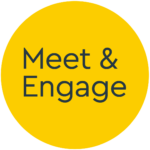Celebrating International Women’s Day earlier this month, it was so heart-warming to hear the stories of prominent women in history and in life as they were showcased and given voice.
Personally, I am so very grateful for those who have been willing to stand up and – often – sacrifice in order to shine a light on inequality, to the extent that significant change has been achieved.
I don’t think any of us feel that we can rest on our laurels, though, in terms of achieving true balance and equality for all, across all protected characteristics and beyond.
In the recruitment of would-be students to Higher Education, or of graduates into a business, there is still a way to go.
There are so many different layers to what constitutes privilege – and recognising the dominant culture of our organisations and any unconscious bias that might pervade our marketing and selection processes is really important.
The fact is, minority groups need encouragement to access the same opportunities as the dominant group, whether in education or employment.
That might mean going beyond our traditional message channels and processes, to offer stronger reassurances to those who feel they may be on the outside, that they will be made very welcome on the inside.
Understand their concerns; have support to offer them and help with their concerns…
On BBC Radio 4’s Breaking the Class Ceiling aired on 25 February, a representative from Deloitte was interviewed about their commitment to D&I (Diversity and Inclusion). He mentioned the striking analogy that ‘Diversity is inviting someone to the party; Inclusion is asking them to dance’.
This is a helpful way of seeing things and suggests that recruiters need to develop a programme of activity that shows that we want a more diverse audience to notice us and apply; we understand their concerns; we have support to offer them to help with those areas of concern and we will make it very easy for them to fully access that support when they join us.
But how can we reach our audience with these reassurances?
On International Women’s Day, one of our clients, Capgemini, hosted two Returners to Work events on the Meet & Engage online chat platform.
A team of three hosted the chat, including one staff member who had recently experienced the Return programme, sharing content and responding to questions from the audience.
Due to the focused nature of the chat and the shared concerns that it tapped into, Q&A flowed easily and the team were able to offer reassurance about topics such as Imposter Syndrome and the mentoring programme they had in place to support Returners.
These days the most common form of communication is online…
Early on in the chat, the team used the live poll function to ask participants how confident on a scale of 1-10 they currently felt about applying for a role; at the end of the chat they asked the same question.
In the early poll most responses fell below 4, whereas the later responses showed a shift to 5 and above. That’s significant!
While lots of participants were very active on the chat, many attended but didn’t actively participate. However, the entire audience stayed for the duration of the chat and many of those who had not submitted a question sent a message of thanks in the closing stages of the chat, expressing how helpful it had been.
One participant fed back afterwards: “It was a great experience to have participated in the chat and to have got an understanding of the Returners programme, especially with interesting questions posed by other returners which I would not have thought to ask. The answers were encouraging, and it was good to know that there is a supportive group at Capgemini for returners.”
As we can see, the opportunity to eavesdrop can be a powerful one!
It’s not difficult to see how this same approach can be used to reassure international or mature students, or those from underrepresented backgrounds about what you’ve put in place to support them.
Often, we want an opportunity to look behind the door, hear from someone like us and have an arms-length conversation in order to inspire confidence, and these days the most common form of communication for that kind of activity is online and text based.
The only way that we will achieve better representation in our institutions and organisations is by helping people to see that they really are welcome, and that they will experience a sense of belonging and equality of opportunity when they arrive.
If the candidates you are trying to reach have any hesitation in thinking that you may be right for them, then providing more opportunities for them to hear from others who they feel an affinity with is the most powerful way for them to feel reassured enough to choose you.
If you would like to hear more about our chat platform and how our clients are using it to support their recruitment, please get in touch – info@meetandengage.com – we would be delighted to hear from you.





